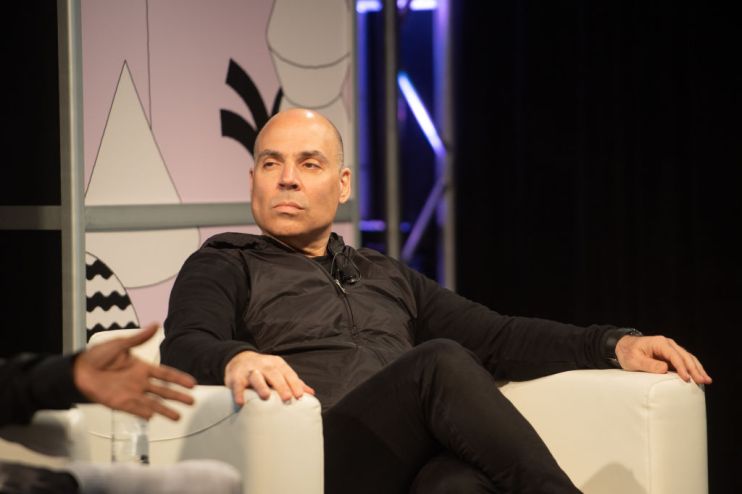Hipgnosis boss: Music industry at risk from ‘gluttonous’ record labels

The music industry is under threat from “gluttonous” record labels taking royalties away from artists and songwriters, the boss of music investment firm Hipgnosis has said.
Merck Mercuriadis accused the major record companies of “trying to take everything for themselves”, warning that some artists were unable to survive off royalty income as a result.
“The biggest threat to the music business right now is not financial, it’s that it is discouraging the great artists of the past, present and future from being a part of this business because of the gluttonous tactics of the record companies,” he told City A.M.
Mercuriadis, a music industry veteran who has managed artists including Nile Rogers and Beyonce, said that for every £1 made from music streaming, record labels take 58.5p.
This compares to 30p for the platform — such as Spotify or Apple — and just 11.5p to be shared between the publisher and songwriters, he said.
Record labels dispute this breakdown of royalties, stating that labels take roughly 43.3p from every £1, 13.3p of which goes to artists.
The Hipgnosis boss insisted the streaming services were “not the villains”, citing their role in resurrecting the music industry following a crippling period of piracy.
While he acknowledged that record labels played an important role by investing in artists and developing their careers, he said the division of royalties was still unfair.
“At the end of the day you don’t need to be taking all of the money to be remunerated for that — there is a fair and equitable split of monies, and that’s not what we’re seeing right now.”
‘Shameful filibustering’
The comments came amid a parliamentary inquiry into the economics of streaming, with MPs grilling top industry figures over the way royalties are divided between different players.
In November singer-songwriter Nadine Shah told the Digital, Culture, Media and Sport select committee that she was struggling to pay rent.
The Mercury prize-nominated artists said her earnings from streaming were “not significant enough to keep the wolf away from the door”.
Appearing in front of the inquiry this week, three of the country’s most senior music bosses defended their cut of streaming royalties and rejected suggestions that the model was unfair.
Universal Music UK chief executive David Joseph — who appeared alongside Sony Music UK boss Jason Iley and Tony Harlow, chief executive of Warner Music UK — admitted that streaming was “not perfect yet”.
But the executives warned any shake-up of the business model could limit investment in artists and harm competition.
Geoff Taylor, chief executive of the British Phonographic Industry (BPI), this week also defended the record labels and warned that the UK’s leadership in music “should not be taken for granted”.
“Tampering with a streaming model that is delivering more investment into more new artists, and providing greater consumer and artist choice, risks undermining the competitiveness that underlies the UK’s exceptional global success,” he said.
Speaking to City A.M., Mercuriadis rubbished the BPI’s claims and described the record label bosses’ testimony as “shameful filibustering”.
The Hipgnosis boss acknowledged that higher royalties for songwriters would benefit his company and its shareholders.
But he said the firm’s “ulterior motive” was to “use the leverage of our great songs and our financial wherewithal to challenge the major record companies and put them in a position where they start to pay the songwriters more money”.
Mercuriadis said he planned to establish a songwriters’ guild — similar to the union representing Hollywood screenwriters — to campaign for a higher share of royalties.